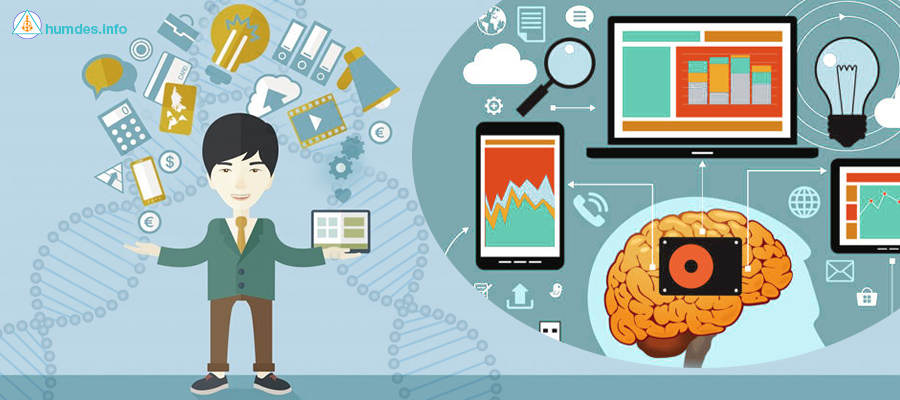One of the favorite requirements of employers around the world is multitasking. Employees who can multitask are highly valued. This is primarily because their ability to multitask enables them to perform well and be as efficient as possible, while spending much less time on their work than most other people.
If you think about it, multitasking really is a very useful quality. Not only in work, but also in everyday life. If you can combine listening to an important lecture and cooking dinner, or, say, calling with colleagues and preparing a presentation, you have a good chance to free up earlier than originally planned and devote more time to rest.
However, the fact is that multitasking has pros as well as cons.
Let’s start with the pros.
Pros of multitasking
With proper planning, multitasking allows you to effectively multi-task at the same time.
This is especially evident in the workplace. Efficiency contributes to the reduction of work costs primarily temporal. And this can have a very favorable effect not only on individual employees, but also on the company as a whole.
Multitasking helps to develop flexibility of thinking and the ability to keep several tasks in focus at the same time.
In other words, multitasking helps to develop focus and concentration. After all, if we have only one task to complete, it does not require much attention. But if there are several tasks at the same time, concentration increases dramatically.
Multitasking speeds up reactions and helps us learn to react better and take proactive action in force majeure circumstances.
Employees who can multi-task tend to handle important and urgent projects much more quickly.
Multitasking promotes personal effectiveness.
As we learn to multi-task, other qualities such as attentiveness, speed, analytical skills, etc. also develop in parallel. And all this has a favorable effect on our professional reputation and personal brand.
And now let’s consider the disadvantages of multitasking.
Cons of multitasking
Performing several tasks at once, we may superficially perceive and process information.
Why does this happen? The fact is that when we need to keep our attention focused on several things, our concentration and mental abilities can drop significantly in certain situations. As a result, we perform several tasks per unit of time, but not enough quality.
The likelihood of mistakes is high.
As already written, when performing several tasks at the same time the focus of attention is dispersed and as a consequence concentration is reduced. And if we lack concentration, we often make mistakes. As a result, inattention on the output we can have a lot of flaws. And the work done with mistakes must be redone. As a result, one task can take twice as much time as originally planned. This means that multitasking makes no sense whatsoever.
Fatigue increases.
Performing several tasks at the same time makes us tired much faster. And fatigue in turn leads to inattention and unwanted mistakes.
Some tasks can remain unfinished.
As the focus of our attention wanders, we may not notice unfinished business. And it may not come up right away.
In addition, it is important to note that some people find multitasking easy and others not so easy. In other words, some people do not suffer from concentration while performing several tasks simultaneously. And someone, on the contrary, sharply begins to work worse. Why does this happen?
Multitasking from the Root Center perspective
As we know, the Root Center is also responsible for the ability to stay focused on one thing. It also gives you the ability or inability to multitask. Of course, other Centers are also responsible for this quality, but in this article we will look at the Root Center.
For the most part, carriers of a particular Root Center are able to multi-task at the same time, and it is not too difficult for them. It’s all about their stress-resistance and fixed rhythm. If you pile several tasks on such workers at the same time, they are unlikely to feel bad about it. Most likely, they will fulfill them in a comfortable mode, and if they have an opportunity to combine several tasks, they will do it without problems.

Things are a little more complicated with indeterminate Root Center carriers, though. These people, for the most part, are not suited to multitasking. That’s because they are very stressed. If they are forced to perform several tasks at once, they are likely to start fidgeting, trying to accomplish everything that is expected of them as quickly as possible. However, if they work too fast for themselves, it will most likely lead to decreased concentration and increased stress. They will be in a hurry and all this will negatively affect the quality of their work.
A simple conclusion follows. If you have an undefined Root Center, most likely multitasking is not for you. Which means that if your employer assigns you several tasks at once and all need to be completed in the shortest possible time, try to explain to him that you will work much more efficiently and effectively if you do one task in one unit of time. If he appreciates you as an employee, he will surely find a solution, because part of the tasks can always be delegated to someone else.
The exception is when you work for yourself and come up with your own tasks for the day. In this situation, if you are not out of your comfortable rhythm and your Inner Authorities tell you that at the moment several tasks at once is what you need, most likely you will successfully cope with everything!
A full decoding of your chart in pdf format is available here.



